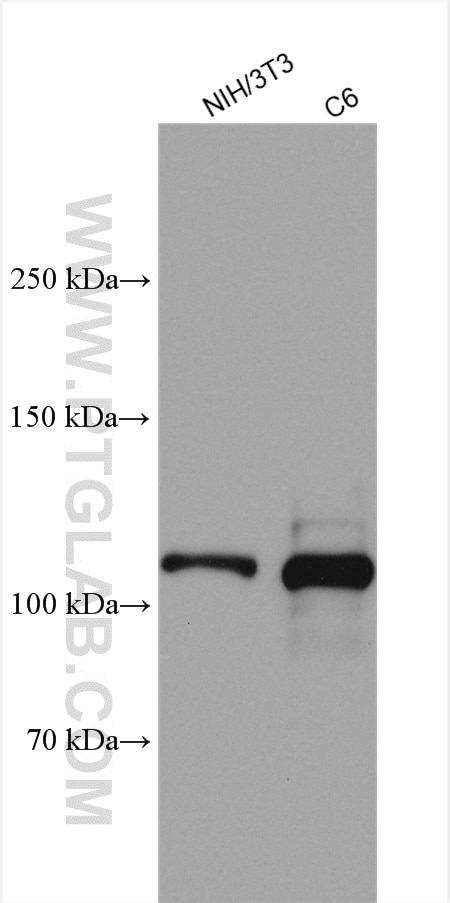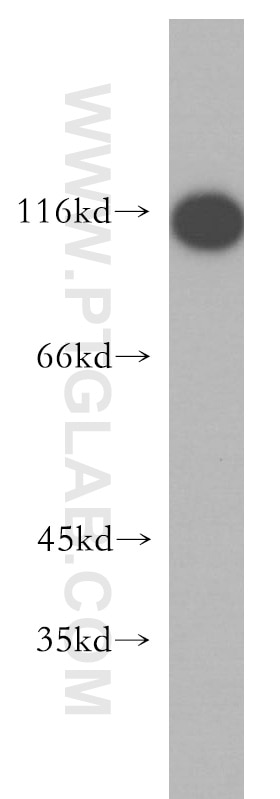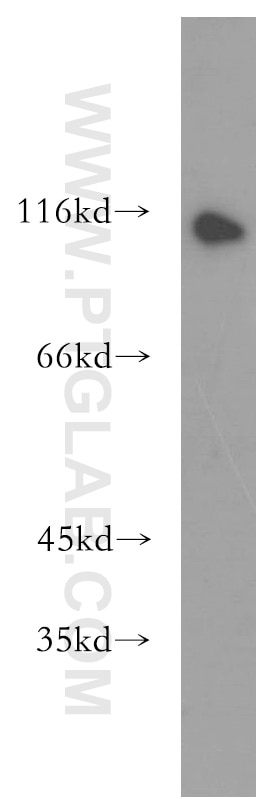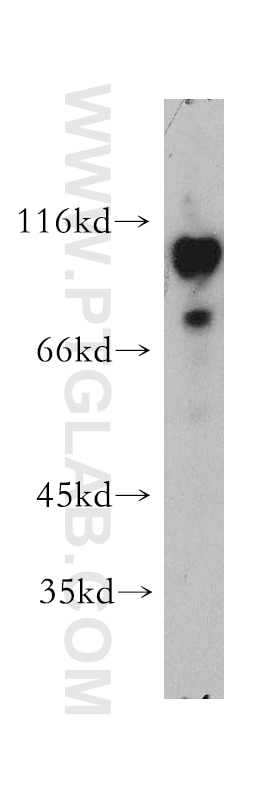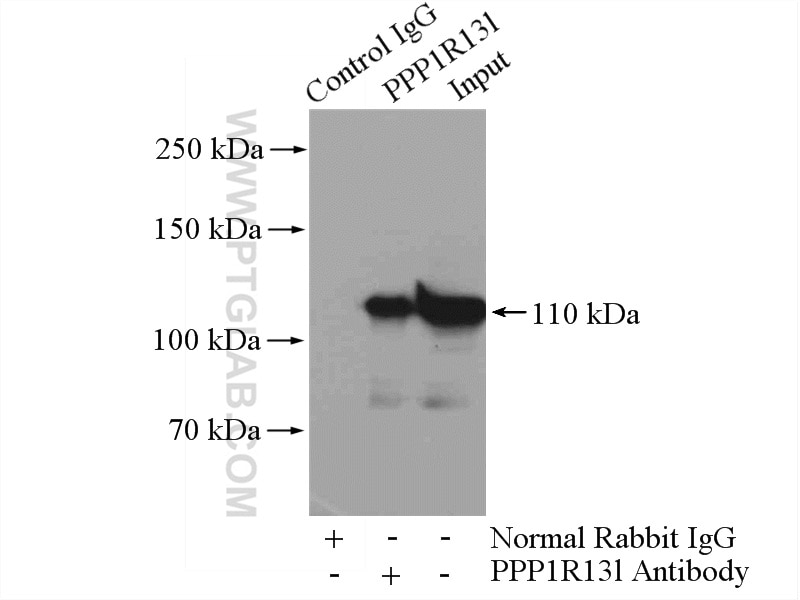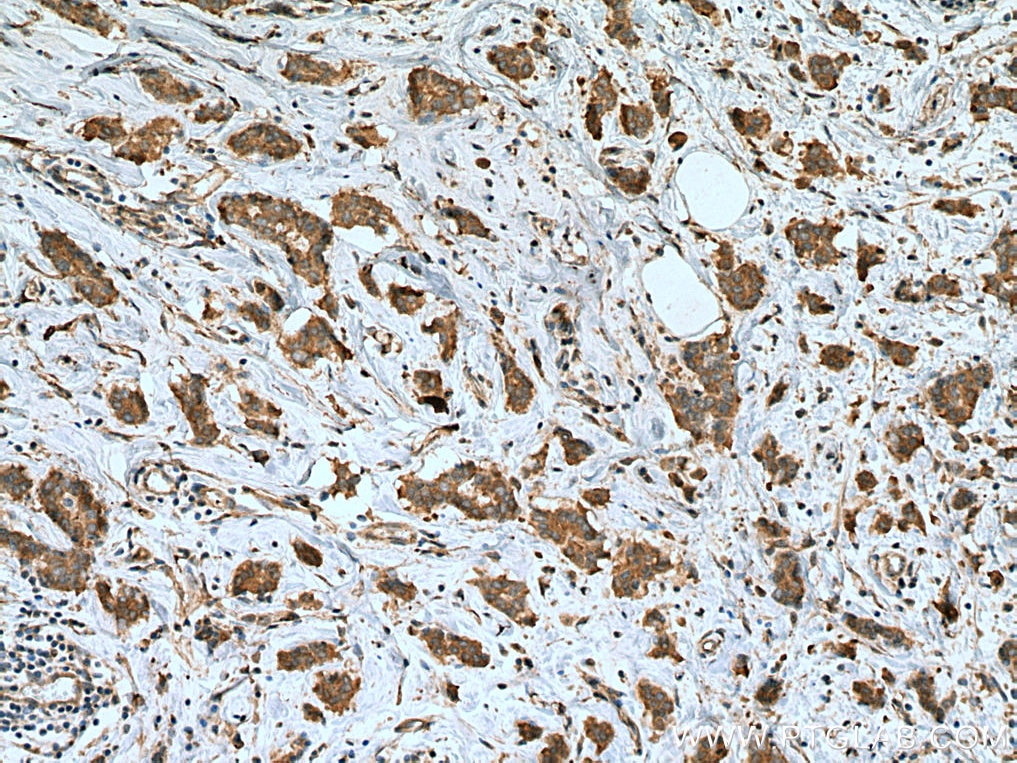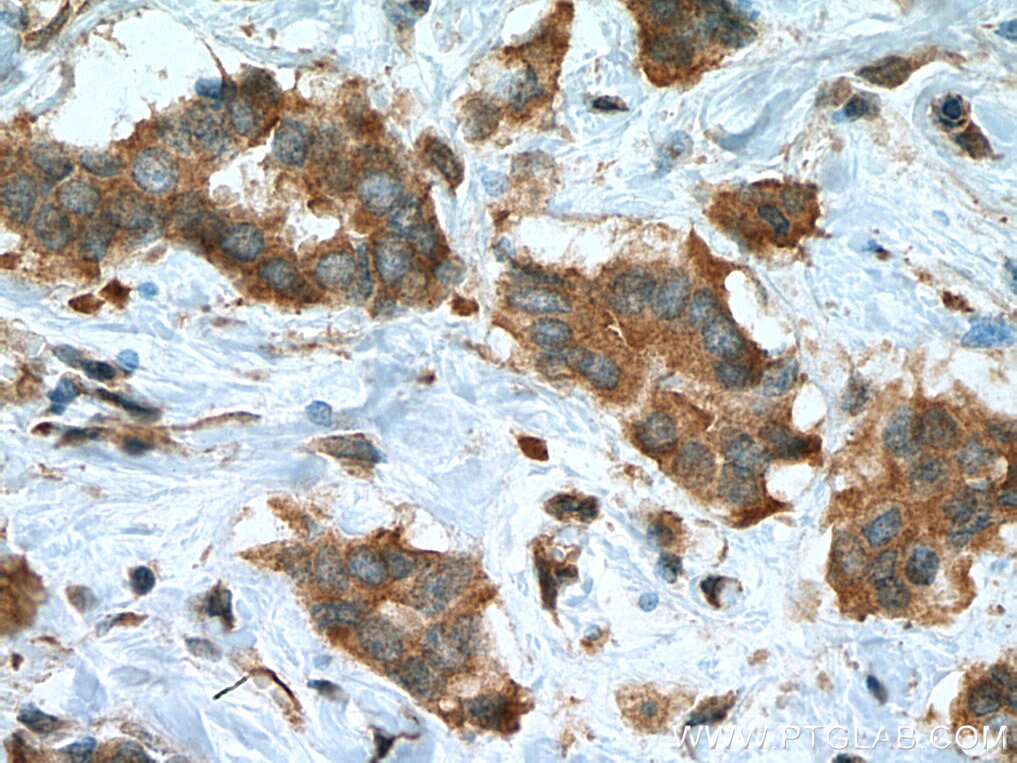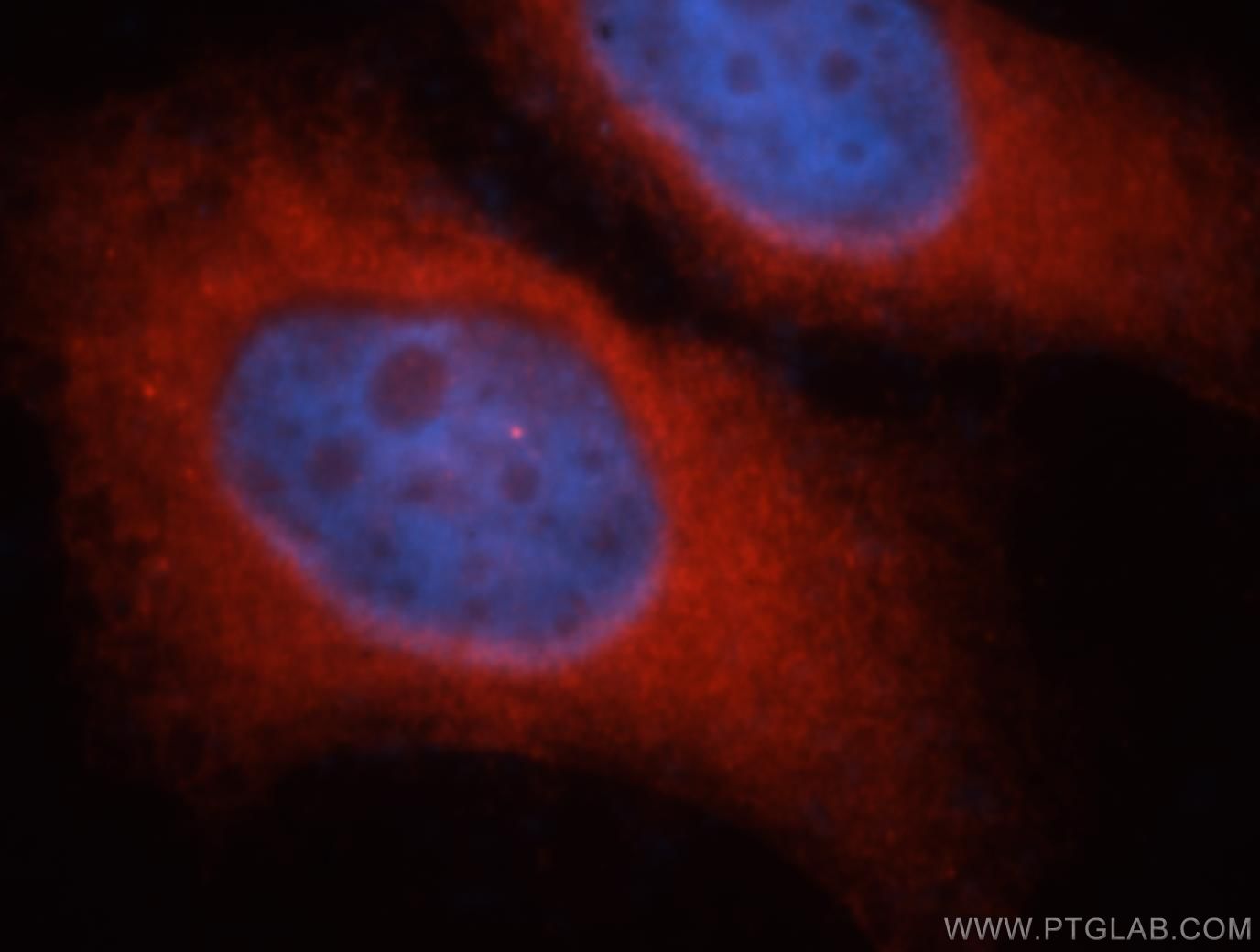- Phare
- Validé par KD/KO
Anticorps Polyclonal de lapin anti-iASPP
iASPP Polyclonal Antibody for WB, IP, IF, IHC, ELISA
Hôte / Isotype
Lapin / IgG
Réactivité testée
Humain, rat, souris
Applications
WB, IHC, IF/ICC, IP, ELISA
Conjugaison
Non conjugué
N° de cat : 18590-1-AP
Synonymes
Galerie de données de validation
Applications testées
| Résultats positifs en WB | cellules NIH/3T3, cellules C6, cellules HeLa apoptosées, cellules MCF-7, cellules PC-3 |
| Résultats positifs en IP | cellules PC-3 |
| Résultats positifs en IHC | tissu de cancer du sein humain, il est suggéré de démasquer l'antigène avec un tampon de TE buffer pH 9.0; (*) À défaut, 'le démasquage de l'antigène peut être 'effectué avec un tampon citrate pH 6,0. |
| Résultats positifs en IF/ICC | cellules MCF-7 |
Dilution recommandée
| Application | Dilution |
|---|---|
| Western Blot (WB) | WB : 1:1000-1:4000 |
| Immunoprécipitation (IP) | IP : 0.5-4.0 ug for 1.0-3.0 mg of total protein lysate |
| Immunohistochimie (IHC) | IHC : 1:400-1:1600 |
| Immunofluorescence (IF)/ICC | IF/ICC : 1:10-1:100 |
| It is recommended that this reagent should be titrated in each testing system to obtain optimal results. | |
| Sample-dependent, check data in validation data gallery | |
Applications publiées
| KD/KO | See 3 publications below |
| WB | See 4 publications below |
| IF | See 1 publications below |
| IP | See 2 publications below |
Informations sur le produit
18590-1-AP cible iASPP dans les applications de WB, IHC, IF/ICC, IP, ELISA et montre une réactivité avec des échantillons Humain, rat, souris
| Réactivité | Humain, rat, souris |
| Réactivité citée | Humain, souris |
| Hôte / Isotype | Lapin / IgG |
| Clonalité | Polyclonal |
| Type | Anticorps |
| Immunogène | iASPP Protéine recombinante Ag13273 |
| Nom complet | protein phosphatase 1, regulatory (inhibitor) subunit 13 like |
| Masse moléculaire calculée | 89 kDa |
| Poids moléculaire observé | 110 kDa |
| Numéro d’acquisition GenBank | BC064913 |
| Symbole du gène | PPP1R13L |
| Identification du gène (NCBI) | 10848 |
| Conjugaison | Non conjugué |
| Forme | Liquide |
| Méthode de purification | Purification par affinité contre l'antigène |
| Tampon de stockage | PBS avec azoture de sodium à 0,02 % et glycérol à 50 % pH 7,3 |
| Conditions de stockage | Stocker à -20°C. Stable pendant un an après l'expédition. L'aliquotage n'est pas nécessaire pour le stockage à -20oC Les 20ul contiennent 0,1% de BSA. |
Informations générales
Inhibitor of apoptosis-stimulating protein of p53 (iASPP), encoded by PPP1R13L gene, is often overexpressed in human cancers. The ASPP family includes three members, namely ASPP1, ASPP2, and iASPP, which are specific regulators of p53-, p63-, and p73-mediated apoptosis. ASPP1 and ASPP2 enhance the apoptotic function of p53, whereas iASPP specifically inhibits p53- mediated apoptosis. Overexpression of iASPP is associated with resistance to cisplatin-induced apoptosis and rediation therapy. iASPP plays a pivotal role in regulating cancer cell proliferation and tumor progression. This antibody could both recognize unphosphorylated and phosphorylated iASPP.
Protocole
| Product Specific Protocols | |
|---|---|
| WB protocol for iASPP antibody 18590-1-AP | Download protocol |
| IHC protocol for iASPP antibody 18590-1-AP | Download protocol |
| IF protocol for iASPP antibody 18590-1-AP | Download protocol |
| IP protocol for iASPP antibody 18590-1-AP | Download protocol |
| Standard Protocols | |
|---|---|
| Click here to view our Standard Protocols |
Publications
| Species | Application | Title |
|---|---|---|
J Cell Biol iASPP contributes to cell cortex rigidity, mitotic cell rounding, and spindle positioning.
| ||
Cell Death Dis iASPP-PP1 complex is required for cytokinetic abscission by controlling CEP55 dephosphorylation.
| ||
J Biochem Mol Toxicol Upregulation of iASPP ameliorates hypoxia/reoxygenation-induced apoptosis and oxidative stress in cardiomyocytes by upregulating Nrf2 signaling.
| ||
Acta Biochim Biophys Sin (Shanghai) iASPP protects the heart from ischemia injury by inhibiting p53 expression and cardiomyocyte apoptosis. |
